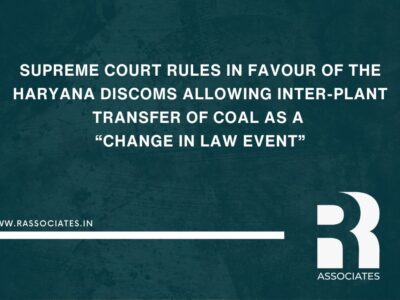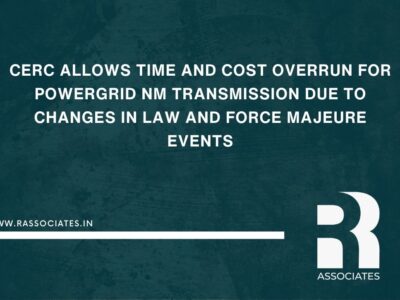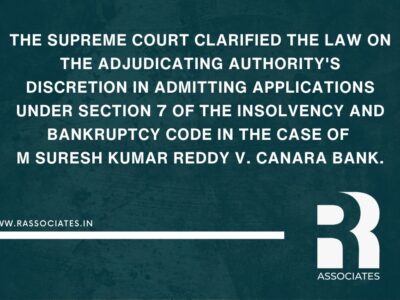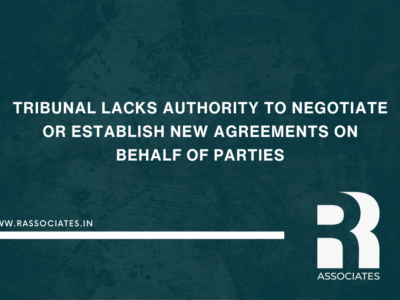
Supreme Court Upholds State Regulatory Oversight Over Inter-State Power Procurement Affecting Local Grid
In a significant pronouncement under the Electricity Act, 2003 (“the Act”), the Hon’ble Supreme Court has held that State Electricity Regulatory Commissions (SERCs) possess the authority to regulate open access power supply, even in cases involving inter-state electricity procurement, provided such supply impacts the state’s electricity grid. The ruling affirms that while the Central Electricity Regulatory Commission (CERC) governs inter-state transmission under Section 79(1)(c) of the Act, this jurisdiction does not oust the regulatory purview of State Commissions over intra-state implications arising from such transactions.
The Apex Court clarified that if the import of electricity from outside the state results in transmission or distribution through the intra-state network, then the SERC is empowered to frame regulations governing such access. It was observed that the statutory framework laid out under Section 42(2) and Section 42(3) of the Act grants the State Commission the competence to regulate open access supply to ensure equitable, fair, and non-discriminatory access within the State’s distribution system.
The Bench, comprising Justice Vikram Nath and Justice Prasanna B. Varale, was adjudicating upon a challenge to the constitutional validity of the Rajasthan Electricity Regulatory Commission’s Open Access Regulations, 2016 (“2016 Regulations”), which imposed certain conditions and restrictions on consumers opting for power supply through open access, particularly where such power was procured from generators located outside the State of Rajasthan.
Under the said Regulations, consumers who chose to draw power through open access were subject to a proportional reduction in their contracted demand with the distribution licensee. Moreover, penalties were stipulated in cases of over-drawal or under-drawal beyond the permissible quantum vis-à-vis scheduled open access.
The Appellants—industrial consumers—challenged these provisions primarily on the ground that the 2016 Regulations exceeded the jurisdiction of the Rajasthan Electricity Regulatory Commission (RERC), particularly insofar as they pertained to inter-state open access transactions. It was contended that the authority to regulate inter-state transmission and supply of electricity lies exclusively with the Central Electricity Regulatory Commission (CERC), and any attempt by a State Commission to control or impose restrictions on such transactions was ultra vires the statutory scheme under the Act of 2003.
Specific objection was raised against Regulation 26(7) of the 2016 Regulations, which, according to the appellants, effectively barred them from sourcing power from outside Rajasthan by imposing onerous and impractical conditions such as a mandatory 24-hour scheduling requirement, advance intimation of power draw, and the stipulation to consume at least 75% of the scheduled power quantum. The appellants argued that these stipulations amounted to an indirect prohibition on inter-state open access and impinged upon their statutory rights under the Act.
In response, the Respondents maintained that RERC was well within its rights under Section 42 of the Electricity Act to regulate open access within the State’s distribution network. It was argued that any electricity—irrespective of its source—once injected into the Rajasthan grid for distribution to end consumers, becomes subject to the State Commission’s jurisdiction. Furthermore, it was submitted that the charges and conditions imposed under the 2016 Regulations were designed to ensure grid discipline, prevent gaming of the system, and uphold the integrity of the intra-state transmission and distribution framework.
The central issue before the Hon’ble Supreme Court, therefore, was whether a State Electricity Regulatory Commission could lawfully frame regulations that apply to inter-state power supply insofar as such supply enters and affects the intra-state grid.
The Hon’ble Supreme Court, while affirming the decision of the High Court, upheld the validity of the 2016 Regulations framed by the RERC. The judgment authored by Justice Vikram Nath squarely rejected the contention that RERC’s regulatory action amounted to extraterritorial overreach. The Court underscored that the decisive factor is not the geographic origin of the power supply, but its injection into and utilisation within the State’s transmission and distribution infrastructure.
It was observed that while the Central Commission governs inter-state transmission under Section 79(1)(c), the State Commission retains plenary authority over intra-state distribution and supply under Section 86(1)(c) of the Electricity Act. Accordingly, the regulations enacted by RERC were held to be intra vires the Act, as they pertained to the management of the state grid and ensured proper coordination and fairness in open access arrangements within Rajasthan.
The Court held that the appellants’ interpretation would negate the statutory scheme envisioned under Section 42 of the Electricity Act and would render redundant the decentralised regulatory architecture intended by the legislature. The Act of 2003 clearly demarcates responsibilities between the CERC and the SERCs, with the latter empowered to regulate all aspects of intra-state open access, even when the power is procured from an out-of-state generator, if such transaction impacts the state network.
Importantly, the Court emphasized that the Regulations were essential to prevent circumvention of scheduling obligations and to discourage opportunistic practices by certain consumers that could compromise the efficiency and equity of the power distribution system. The Court concluded that RERC’s power to impose such conditions and charges was in consonance with its statutory mandate and that the appeal lacked merit.
Consequently, the Supreme Court dismissed the appeal and upheld the legality and enforceability of the Rajasthan Electricity Regulatory Commission’s 2016 Open Access Regulations.
Case Title: Ramayana Ispat Pvt. Ltd. & Anr. v. State of Rajasthan & Ors.
Citation: 2025 LiveLaw (SC) 384




